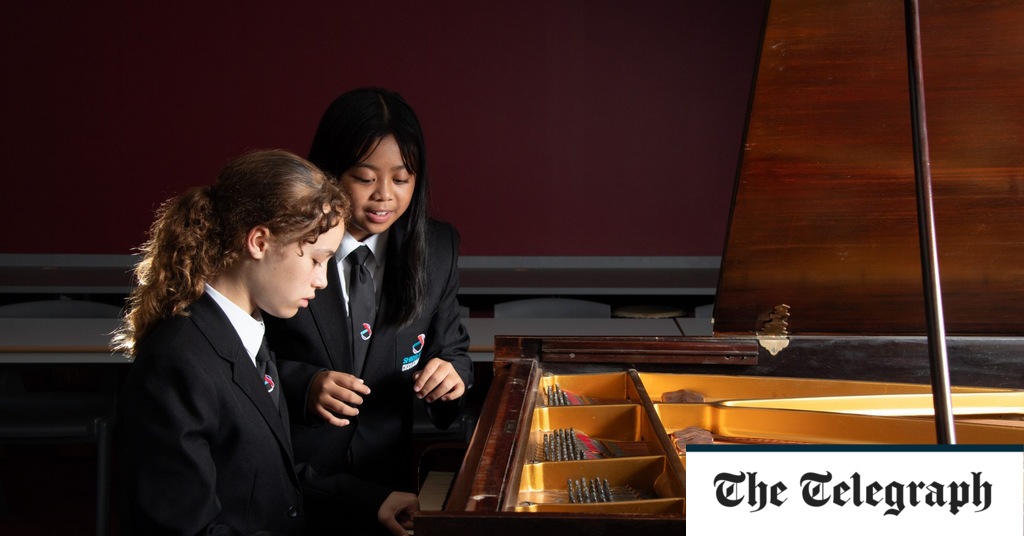Imagine a school where music, instead of being an afterthought, is at the heart of everything. A school where in the corridors you bump into players from a world-class orchestra, en route to giving a masterclass for the pupils, in purpose-built rooms all kitted out with their own digital pianos. A school where after hours the pupils can hear performances from those same musicians, and even take a trip to hear them for free at the orchestra’s shining concert hall.
In these straitened times, such a school seems like a dream from an earlier, more hopeful age. Yet it actually exists right now, in Smethwick in the West Midlands. It is the Shireland CBSO Academy, and as the name tells you it is an alliance between an educational trust, the Shireland Collegiate Academy Trust, and one of the country’s great orchestras, the City of Birmingham Symphony Orchestra.
It’s early days at the school, which opened only a few weeks ago, and so far it has only a small cohort of around 140 pupils in Year 7. It sits in a leafy square in an area that’s clearly not privileged; in fact, as the school’s principal Dave Green tells me, Sandwell (the borough in which Smethwick is located) is among the dozen most deprived in the country. This year, the number of pupils eligible for free school meals has soared to a record 31 per cent, around a third higher than the national average, and Sandwell Council is offering meal vouchers to the poorest families over the school holidays.
But the school building itself, cleverly repurposed from an old industrial site once owned by BT, is architecturally impressive with plenty of light everywhere. Much of it lies empty, waiting for the Year 8 to 11 pupils that will arrive in stages over the coming years. Green shows me round, pointing out details such as the walls set deliberately skew-whiff to improve the acoustics, the very impressive auditorium with its raked seats, and the recording studio. Funding, as with all academies, comes directly from the Department for Education, with additional fundraising from the CBSO.
“It’s our aspiration every child who comes here will study GCSE music, or a music tech equivalent,” he tells me, “though a lot of the children here at the moment won’t necessarily have a musical background. We can award 10 per cent of our places each year based on musical aptitude, but for 90 per cent of the children, there are no entry requirements. We just make it clear that if they have a passion or talent for music that would be really helpful, and if they don’t then this is probably not the school for them.”


